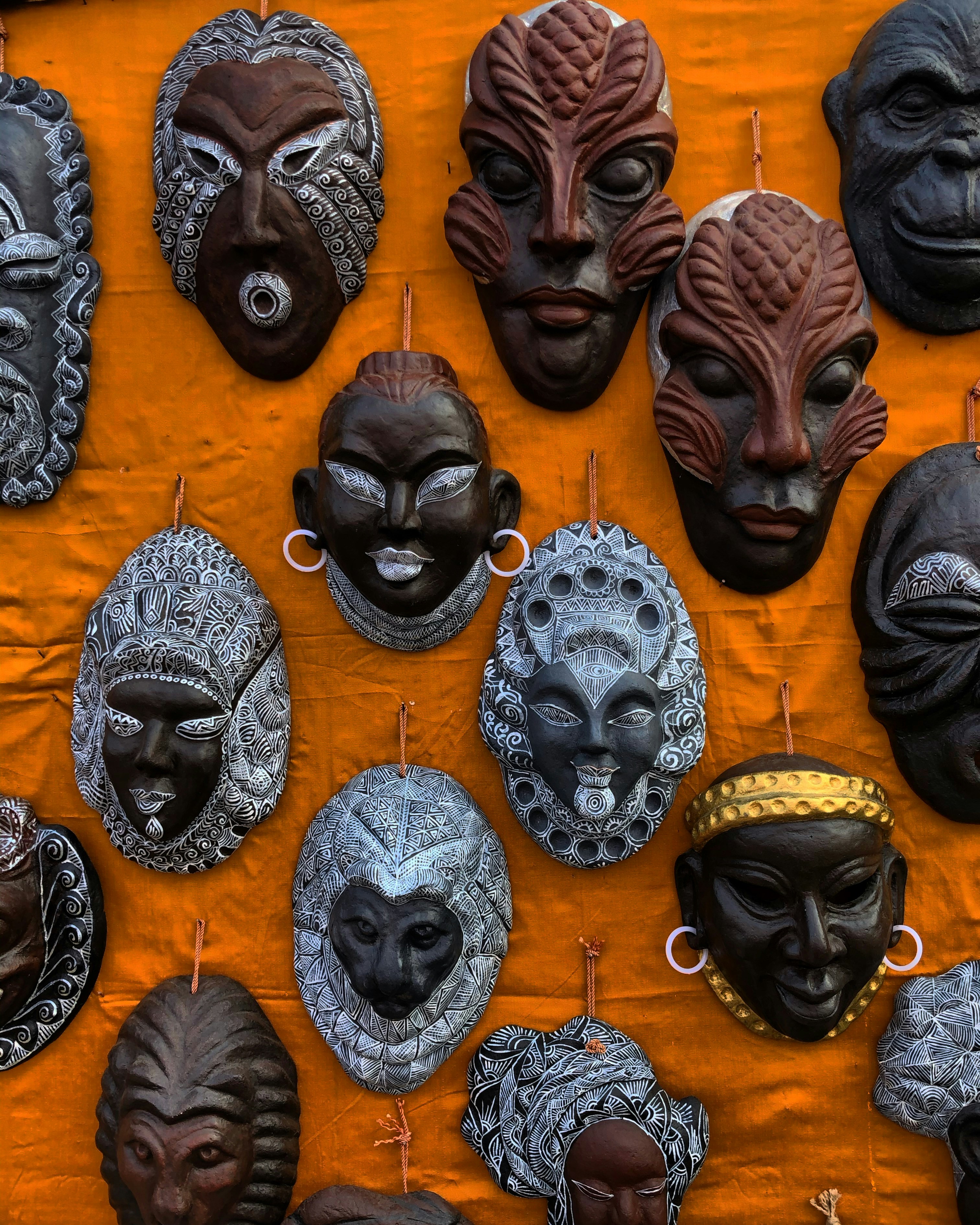Beyond the Playbook: How Culture Drives Fan Loyalty in Sports
In the vibrant world of sports, loyalty extends beyond mere allegiance to teams; it is intertwined with deep-seated cultural narratives that shape identities and foster community. From the roar of fans in stadiums to the quiet moments of reflection at home, sports manifest rich experiences that influence how individuals perceive their teams and themselves. Let’s explore how cultural narratives contribute to fan loyalty and create a unique sports identity, forming the bedrock of the sports community.
The Cultural Woven Fabric of Sports Loyalty
Sports do not happen in a vacuum; they reflect the culture in which they exist. Team identity is typically crafted from local histories, traditions, and values. For instance, consider the significance of the Green Bay Packers in Wisconsin. Their unique status as a community-owned team resonates deeply with local pride and history, creating an engaging narrative that goes beyond the game. This example illustrates how a team's identity is woven into a community's fabric, reinforcing loyalty and giving fans a sense of ownership and connection that transcends mere fandom.
Cultural Narratives Shape Identity
Cultural narratives can reveal much about why certain teams attract devoted followers. Ethnic and cultural backgrounds play a pivotal role in shaping a fan's connection to a team. For example, cities with rich immigrant histories often see sports teams become microcosms of their communities, embracing the diverse identities of their fans. The Chicago Cubs' long-standing connection with the city's Irish heritage and their triumphant victory in the 2016 World Series serve as a perfect case study, rekindling a sense of pride and historical significance among generations of fans.
Sports identities also reflect collective experiences and emotions. The rise of emotional analytics in sports, discussed in our article on "The Rise of Emotional Analytics," highlights the importance of empathetic connections between teams and fans. Understanding these emotions can create more explosive ties to franchises, as shared highs and lows cultivate a sense of belonging.
Millennial and Gen Z Influence
As Millennial and Gen Z fans dominate the current sports landscape, their preferences and values particularly shape cultural narratives. This generation is more attuned to social justice, environmental issues, and inclusivity. As a result, sports teams are increasingly aligning themselves with these values to foster loyalty. For instance, the NBA's support for movements like Black Lives Matter shows how aligning with cultural narratives can solidify a team's identity among younger audiences.
The Role of Social Media
In an age where social media reigns supreme, the way fans engage with sports has transformed dramatically. Platforms like Twitter, Instagram, and TikTok amplify cultural narratives, allowing fans to express themselves and connect with others who share their passions. Successful teams harness this potential for fan engagement, creating campaigns that resonate with their followers’ cultural beliefs. This is particularly important as we explore the impact of social media on sports narratives, which is further discussed in our piece covering "The Hidden Hand: Social Media's Role in Sports Narratives."
A Deep Dive into the Psychology of Fan Loyalty
The psychological aspects of fan loyalty are deeply intertwined with cultural narratives. Fans engage in complex cognitive processes as they form attachments to their teams. Key theories, such as social identity theory, suggest that fans derive part of their self-esteem and identity from their association with a team. This effect is substantiated by the findings presented in "The Psychology of Sports Sacrifice", where we delve into the intricate mental processes of athletes and their supporters alike.
Rivalry and Its Cultural Underpinnings
Sports rivalries are often rich narratives steeped in history, fueled by regional pride and cultural dichotomies. Take the iconic rivalry between Boston Red Sox and New York Yankees. Here, cultural narratives and local pride shape how these fans perceive each other, argued deeply in our exploration of "The Psychology of Rivalry". This rivalry is more than just wins and losses; it encapsulates cultural sentiments, perceptions of identity, and even age-old feuds, creating narratives that energize excitement and loyalty among fans.
Group Dynamics and Community Engagement
The camaraderie experienced within fan groups creates a sense of belonging. When fans share their experiences—be it attending games together or discussing match-day rituals—they actively contribute to the cultural narrative surrounding their team. This collaborative spirit reinforces loyalty and team identity. Local sports bars, community events, and charity initiatives often become stomping grounds for these interactions, further cementing community ties. These local connections create possibilities for vibrant discussions, as highlighted in our blog about "Transforming Local Sports Culture: Meet Your Unsung Heroes".
Beyond the Stand: Cultural Narratives and Economic Impact
Cultural narratives in sports extend beyond emotional connections; they also have economic implications. Teams that engage effectively with their communities generate robust economic benefits—from merchandise sales to increased attendance at games. The connection a fan feels to their team often translates into financial support, bolstering the local economy.
National Identity through Sports
The role of sports in shaping national identity cannot be overlooked either. International events like the FIFA World Cup or the Olympics serve as platforms for nations to express themselves culturally and politically. For example, South Africa’s hosting of the 2010 World Cup provided an opportunity for the nation to showcase its transition from apartheid to a more inclusive society, knitting together fragmented narratives into a unified cultural identity. As discussed in our blog about "The Cultural Exchange of Sports: Redefining National Identity Today", this unification serves to strengthen national loyalty, as cultural pride manifests through sporting achievements.
Globalization and Cultural Exchange
The globalization of sports has led to an interesting and sometimes complex intermingling of cultural narratives. As leagues expand internationally, they encounter diverse cultural contexts, enriching the narratives surrounding athletes and teams. This phenomenon raises questions surrounding authenticity, representation, and commercialization, as explored in our article on "The Silent Competitors: How Urban Wildlife Shapes Sports".
While globalization can dilute local identities, it can also provide opportunities for cross-cultural exchange while reinforcing local narratives. Think of how teams like FC Barcelona promote not only sports but also Catalan cultural identity; their motto, “Més que un club” (More than a club), exemplifies this phenomenon.
Diversity in Sports: Amplifying Cultural Voices
Cultural narratives are amplified through diversity, lending a richer texture to the identity of sports. The influx of international athletes has brought diverse perspectives into the spotlight, emphasizing the layers of cultural identity present in sports today. A great example can be found when thinking about elite athletes from different backgrounds stepping up to create dialogues around social and environmental issues.
The Impact of Inclusive Practices
Inclusive practices not only enhance fan engagement but also create a more welcoming environment within sports arenas. The visible representation of diverse voices in sports decides which stories get told and how they’re perceived. Organizations are increasingly focusing on equity, diversity, and inclusion in their operational practices, thus developing stronger connections to fans.
Recent initiatives, such as the NBA’s diversity and inclusion programs, aim to foster broader fan loyalty among communities while reinforcing the value of representation. As we further explore the nuances of inclusivity in sports, check out "The Psychological Playbook: Mental Health Strategies of Athletes."
Cultural Narratives in Women’s Sports
Women’s sports have undergone significant transformations, gaining visibility and breaking societal barriers. The narratives surrounding women athletes contribute to broader cultural conversations about gender equality, respect, and representation in sports. The story of the U.S. Women’s National Soccer Team and their fight for equal pay encapsulates these themes powerfully, galvanizing support and loyalty from a community invested in both sports and social justice.
The Future of Fan Engagement Through Cultural Narratives
As we look to the future, the evolution of sports is bound to hinge on these cultural narratives. The increasing integration of technology, combined with a growing focus on ethical practices and social responsibilities, will form new layers of identity and loyalty among fans.
Embracing Technology and Cultural Shifts
The rise of technologies, such as augmented reality and immersive experiences, promises to enhance fan engagement and reinforce cultural narratives. The worlds of eSports and traditional sports are merging, leading to creative new forms of fandom. Virtual platforms present fans opportunities to unite over shared experiences and evolve cultural narratives dynamically. This shift is explored in our analysis of "The Metaverse: Transforming Athlete Performance and Fan Engagement."
Sustainability and Fan Loyalty
As environmental awareness grows, sports teams that adopt sustainable practices and emphasize their cultural narratives around eco-friendliness have the potential to create a loyal fan base. By connecting sports with meaningful environmental initiatives, teams can thrive in an increasingly conscientious consumer landscape.
Final Thoughts
Understanding the intersection of cultural narratives, sports identity, and fan loyalty illuminates the rich tapestry that binds fans to their teams. As sports continue to evolve, these cultural connections will play an essential role in fostering intimate relationships between fans and their teams. By capturing and embracing these narratives, teams and athletes can resonate with their supporters, creating a legacy that endures beyond the confines of the scoreboard.
What narratives speak to you as a fan? Engage with your local teams, share your thoughts on social platforms, and immerse yourself in the cultural stories that weave through our sports experiences. By doing so, you not only enrich your connection to sports but also contribute to the evolving cultural landscape that surrounds them.












